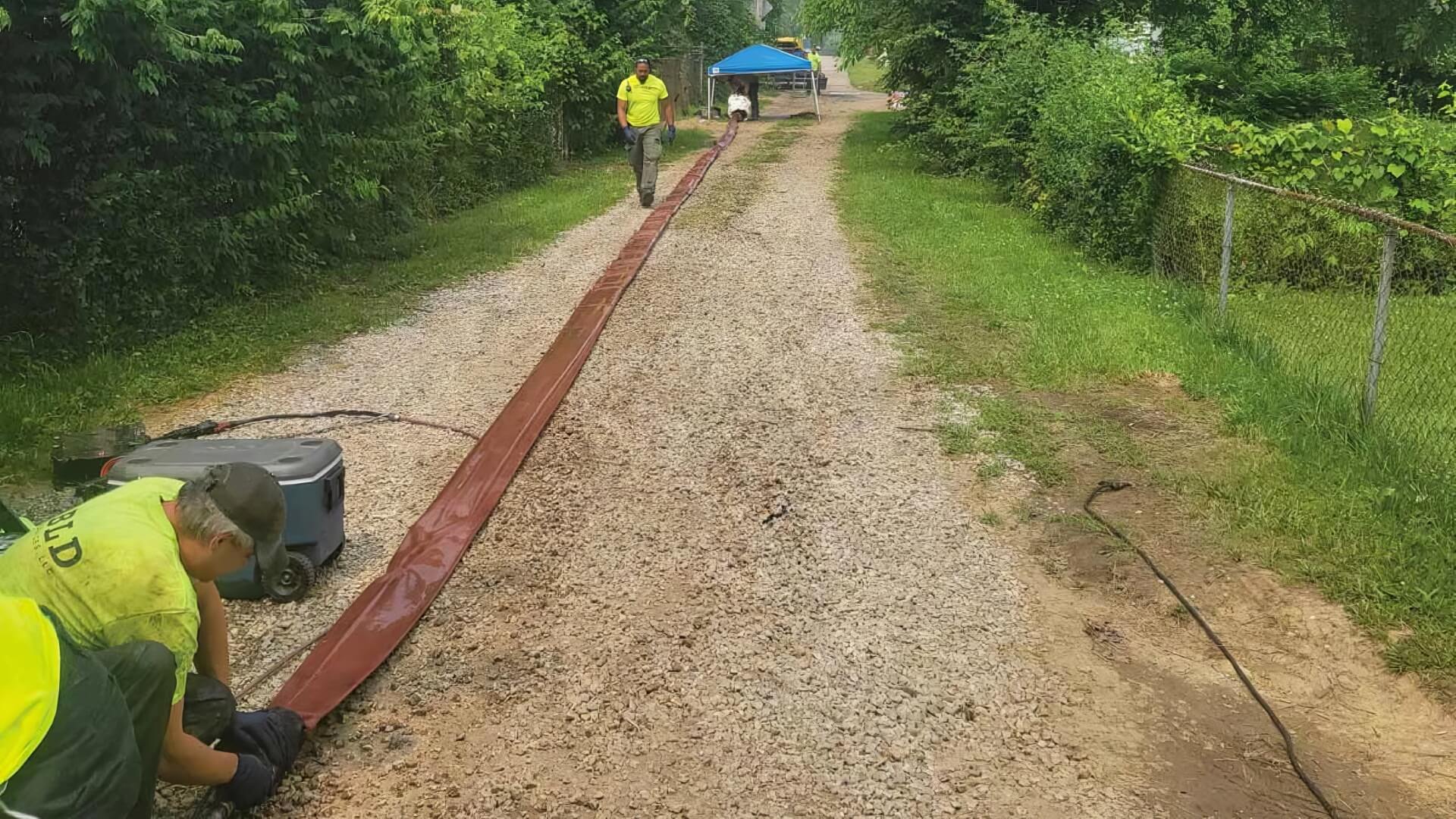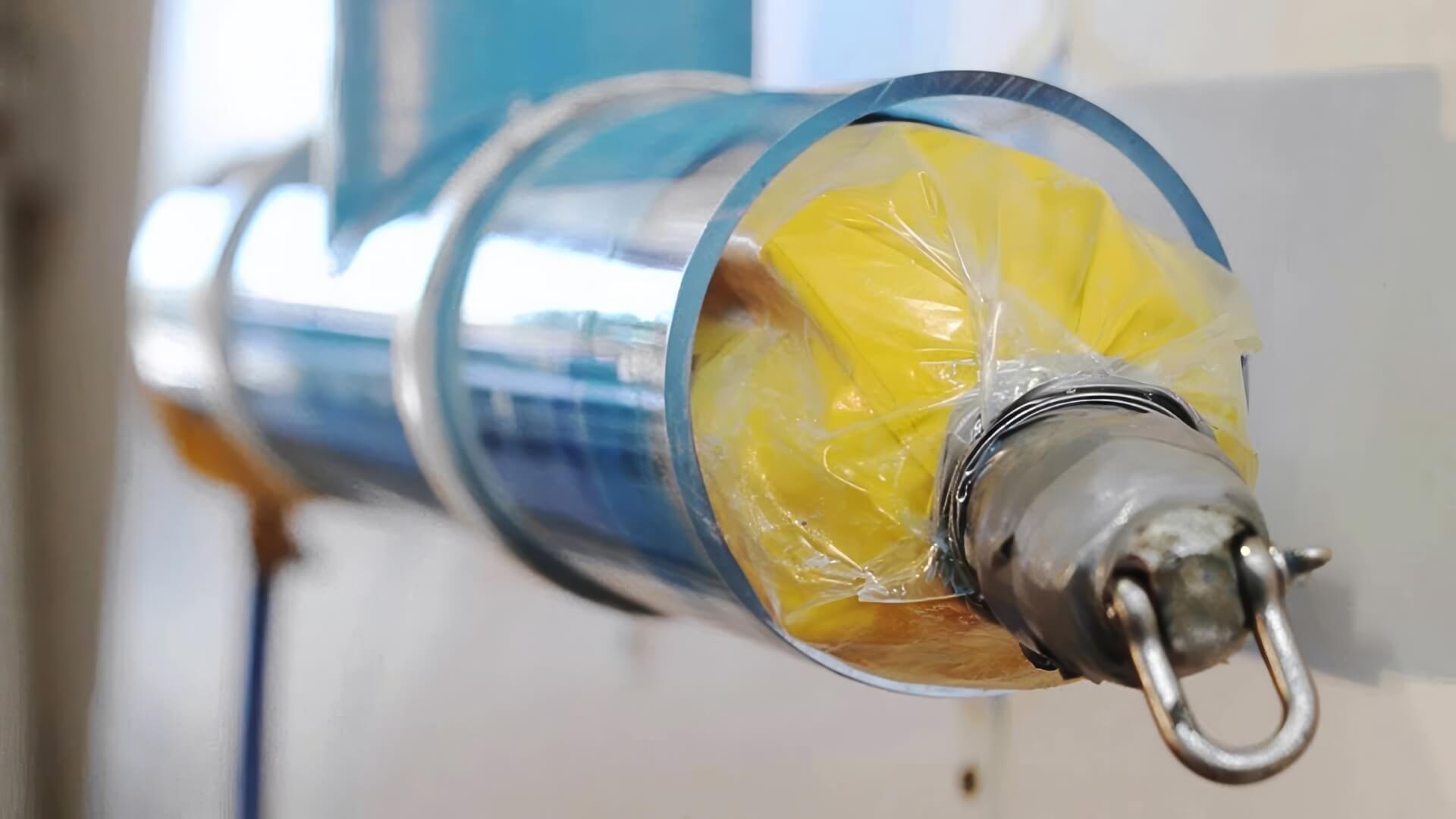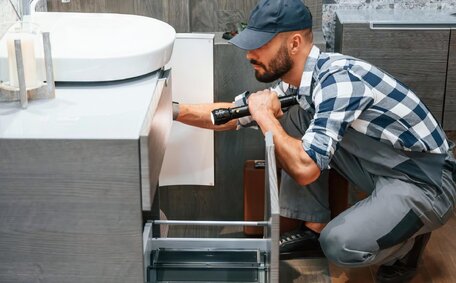Introduction to choosing plumbing materials
Choosing the right plumbing materials and fittings is crucial for homeowners. Water pipes associated with your plumbing fittings ensure an efficient flow of fresh and wastewater, crucial for the effectiveness of your hot water system. Selecting the correct materials guarantees your family’s access to clean, safe hot and cold water and mitigates the risk of leaks, bursts, and corrosion.
When renovating or constructing your sanctuary, different types plumbing pipes necessitate meticulous consideration to ensure you choose the best setup. Factors such as water supply, UV exposure, outdoor elements, soil conditions, cost, building codes, and suitability for hot and cold water applications all influence the choice of plumbing materials.
To choose your ideal plumbing materials, understanding the various kinds pipes available is essential; including copper, PEX, PVC, steel cast iron, and CPVC.
Each type of pipe has pros and cons that must be carefully evaluated to ensure effective use. Copper piping, known for its sturdiness and resilience, is used for hot and cold water applications effectively, though it comes with a higher price tag. PVC pipes are ideal for underground plumbing but may not be suitable for all indoor uses due to UV sensitivity.
At Padstow Plumbing, we prioritize that your plumbing pipes support safe drinking water delivery., solidifying our position as seasoned experts in residential plumbing, boasting over 25 years of experience in residential commercial plumbing solutions in Sydney. Our licensed plumbers are skilled in pipe repairs, drain cleaning, new installations, and routine maintenance, ensuring your home’s plumbing system uses compliant, durable materials.
Common types of plumbing materials
Plastic pipes - Known for their corrosion resistance and lightweight nature.
PEX water pipe - This tubing, often used in water supply systems, is known for its versatility and flexible properties. PEX pipes also offer a more budget-friendly supply line alternative to copper.PVC pipes - Rigid white plastic pipes used for drains and underground outdoor plumbing.Cast iron pipes - Once the most common for your drains but being phased out due to cost.Galvanized steel - Previously used for supply lines but prone to rusting.Lead - Historically used in plumbing but no longer used due to health risks.CPVC - Plastic piping efficiently rated for the hot cold water supply.Choosing suitable pipes requires careful consideration of their intended location and function within your plumbing system. Indoor supply lines, drains, outdoor underground piping, and sewer connections all have different requirements due to their specific functions. Our team can help suggest the perfect plumbing pipes your home requires for its varied needs, including gas and water systems.
Plastic pipes
Plastic pipes, especially PVC and PEX, have become increasingly popular in Australian homes for their compatibility with residential plumbing systems. The lightweight, flexible nature and simplicity of installation of these pipes carry the added benefit of making them resistant to corrosion in your plumbing system. Making them ideal choices for your home plumbing requirements.
However, it should be protected from UV light by using insulation or being buried underground.
Rigid pipes, such as PVC, are securely joined using solvent cement, ensuring a more reliable connection compared to PEX installations.
PEX piping, identified as a variety of cross-linked polyethylene, is pliable plastic tubing, outstanding for arrangements that encompass domestic plumbing for water heater systems, and simplifies installations around corners or in tight spots. PEX pipes, also suitable for cold hot water delivery up to 180°F, match various applications. It is chlorine and chemical resistant but like PVC, should be shielded from UV rays if outdoors.
The primary limitation of plastic pipes is their capacity to withstand certain temperatures and pressures. Copper and stainless steel are robust materials offering more than adequate performance in plumbing under higher temperatures and pressures. The specific pipes that are the best for your system should be employed strictly within their certified performance rating.
Your plumber can advise on the right type of plumbing pipes for your house’s bathroom based on water pressure, fixture locations, and water heaters specs.
Overall plastic pipe systems when installed properly can be a cost-effective, low maintenance plumbing solution. When it comes to your home’s plumbing, be sure to choose the most suitable plastic material grade, thickness, and plumbing fittings fixtures for your application.
Metal pipes
Metal pipes, including copper, stainless steel, and galvanised steel, are commonly chosen for traditional plumbing systems. Each material, from rigid copper to flexible plastics, presents unique benefits and drawbacks.
Copper and brass pipes are renowned for their quality and are a preferred choice due to their versatility and longevity. Copper pipes, employed for used hot water, also handle cold water consistently and at high pressure for extended periods.
Copper stands out among piping materials for its durability, resistance to corrosion and mineral buildup, often lasting over 50 years. The main disadvantage is the expense, as copper, being a high-quality material, is costly to purchase and install.
With its robust composition, stainless steel is an excellent option for tankless water heaters, offering durability and corrosion resistance on par with copper. Stainless steel is also suitable high temperature and pressure applications, rendering it an excellent choice for commercial settings. One drawback is that it necessitates special threaded fittings to connect to other pipe types.
Galvanised pipes, previously common for water supply lines, are now less favoured due to corrosion over time. Eventually, the galvanised coating wears away, with the pipes rusting from the inside, causing leaks, reduced water pressure and potential contamination. For these reasons, galvanised pipes are no longer recommended for domestic plumbing.
In bathroom plumbing, materials like copper remain reliable, whereas PEX and PVC present more cost-efficient alternatives. During a bathroom renovation, converse with a professional plumber to decide if a blend of copper pex options, or another alternative, is best for your system’s specific needs.
Factors to consider when selecting plumbing materials
Choosing the right plumbing pipes for your home is crucial to a functional and secure domestic plumbing system, necessitating thoughtful consideration of several important factors:
Water type and quality - The mineral content, pH, hardness, and contaminants in your water supply will determine which pipe materials are most suitable. Copper and plastic pipes fare better with hard, alkaline water, while stainless steel handles acidic water well.
Temperature and pressure requirements - The pressures and temperatures your hot and cold water supply can withstand will influence the choice of pipe types. Plastic pipes offer an ease of use with their lower pressure and temperature capacity compared to metal alternatives.
Exposure to outdoor elements - For outdoor or underground type plumbing, UV and weather resistance are crucial. Various PVC compositions tolerate sun and soil well, yet in comparison, PEX does not exhibit the same resilience as a steel pipe.
Costs - Plastic pipes can also be the most affordable, while copper pipes are moderately priced and stainless steel is a premium-priced option.
Ease of installation/repair - Flexible plastic pipes like PEX can easily simplify installations, whereas the process of soldering copper can be more involved.
Longevity and durability - In the long run, copper and stainless steel pipes have the most extended functional lifespans before a pipe replacement is needed.
Noise - Plastic pipes dampen water flow sounds, while metal transmits noise through walls.
Codes and standards - Make sure any plumbing materials conform to Australian standards and plumbing codes.
Carefully weigh all these aspects before settling on the ideal plumbing system materials for your home. Partnering with a professional, licenced plumber is highly recommended to ensure proper selection and installation.
Tips for choosing the right plumbing materials
Here are some tips when evaluating options:
- Don’t sacrifice quality solely for lower upfront costs. Higher grade, longer-lasting materials like copper can save money over time.
- Match materials to your application’s specific temperature, pressure and exposure needs. Plastic pipes have lower limits than copper or steel.
- For hot water lines, identify which pipes are best suited for high temperatures such as copper, stainless steel, or CPVC plastic.
- To reduce water flow sounds, plastic pipe materials dampen noise better than rigid metal pipes.
- If your water supply is acidic or alkaline, choose pipe materials that resist corrosion from those conditions.
- For outdoor or underground plumbing, opt for UV-resistant PVC or stainless steel due their robustness against sun damage.
- PEX plastic tubing, often used in plumbing for its flexibility, simplifies installations around corners, but choose copper for straight runs.
- Consult the professionals at Padstow Plumbing to pinpoint the materials that are best for your home’s requirements.
Optimal plumbing materials for your home should last decades, ensure efficient water delivery under sufficient pressure, and guard against leaks or bursts. Despite a higher initial investment deterring some, appropriate pipes and fittings can save both money and stress throughout your home’s lifespan.
Licenced, experienced plumbers like those at Padstow Plumbing stay up-to-date on the latest product options, building codes, and installation methods. They can expertly assess your home’s unique needs, which can include recommending compliant, long-lasting plumbing solutions tailored specifically for you.
Professionals leverage established networks to obtain high-quality plumbing supplies at competitive prices. Additionally, their specialised training and equipment enable them to perform efficient, leak-proof installations, which can be challenging for amateur DIY enthusiasts.
Hiring a pro ensures you know which plumbing materials to choose and secures precise installation, helping to dodge potential issues down the road. It also provides peace of mind knowing that, when choosing plumbing components, your system was built to last by experts.
The modest upfront investment of enlisting Padstow Plumbing’s professional help for your next plumbing project can save thousands due to their expertise in avoiding potential water leak repairs or replacements. Contact us today to schedule a consultation!
While homeowners may consider choosing plumbing materials independently, seeking the insight of professional plumbers comes with significant benefits.
Conclusion
The correct selection of plumbing materials is essential for homeowners as it impacts both the function and durability of pipes, fittings, valves, and fixtures.
Although plastic pipes such as PEX and PVC provide cost-effectiveness and corrosion resistance, traditional metals like copper still offer superior durability for hot and cold water delivery. Consulting with licensed plumbers like those at Padstow Plumbing ensures proper installation and compliance with codes, leading to improved safety, water efficiency, system durability, and fewer repairs in the future. Contact Padstow Plumbing today to discuss the ideal plumbing solutions fo






